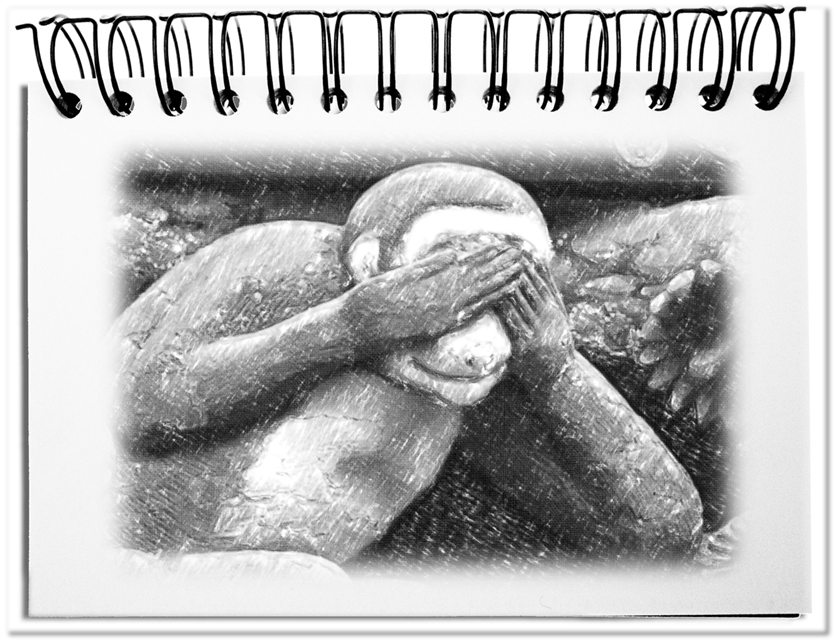There are many reasons not to notice circumstances. Without the appropriate view to the happening it is asked too much, to observe anything at all. Since this defective vision does not happen deliberately, referring to aspects of the current situation is a crucial pre-requisite, in order to better jointly recognize connections. The right moment for additional descriptions is the statement „I do not see anything, ….“
For better understanding, we can look at the reasons for blind spots.
- … because someone or something interferes my view.
In front of a wall that has neither door nor window, with best intentions it is not possible to see, what is behind the wall. For better insight there are no other ways than striking a breach into the wall or to look behind it from a higher view point or by smartly walking around the barrier. - … because I carry blinkers.
The own field is the basis for certain findings. However, sometimes your own experience is a bar to see. The internal convictions work like blinkers that do not let through any attractions, which take place outside of the professional field of vision. In such a case it is crucial to irritate people in such a way that they turn their heads into the desired direction and register new points of view. - … because I suffer from some sort of visual impairment.
As long as the view is not sharpened by formative experiences, although you can see the happening, yet you cannot recognize the relationships. This blur leads to false conclusions and thus to an incomplete picture. In this case additional explanations are needed, in order to receive a high-contrast and meaningful picture. - … because it is too bright or too dark.
Favorable lighting conditions are a requirement for a clear view. If one is dazzled by too much information, then this flood outshines the own horizon. If one receives too few inputs, then one stands in the dark and has no visual aid. In such cases the crucial information should be made available in a manageable quantity, in order to have something recognizable - … because there is nothing to see.
If someone does not see anything, this can also be due to the fact that there is nothing to see at all. If empty words and abstract terms are used that do not state anything substantially, there is also nothing to recognize. In this case it is worthwhile to make abstract messages more understandable. - … because I may or should not to or because I have to shut my eyes.
Internal information that is classified as secret has to be treated confidentially. They cannot do anything else than closing their eyes and not speak about it. This does not mean that there is nothing to be seen, but for legal reasons you are forced to keep silent about it. - … because I can’t do it.
There are cases, in which one does not refer to it, since there are no proofs or simply no words to talk about it. An interactive discourse can provide clarity. In these cases for the aspects that you couldn’t express previously are jointly developed and documented. - … because I do not want it.
The reasons, why someone does not want to show something, reach from the current personal mood to professional reasons. Lacking acceptance or commitment create a personal distance that leads to the fact that someone shut oneself off. A simple way to cover this is to say „ I do not see anything, … “. For this reason you should not forget to analyze, whether there are reasons for a not-wanting.
Bottom line: „I do not see anything “ is not a statement that you should simply accept. It has to be the starting point for discussing the reasons of this apparent blindness. As soon as you become aware that there might be many reasons, it makes sense to investigate and bring some light on the issue. Eventually you will be seeing more.

